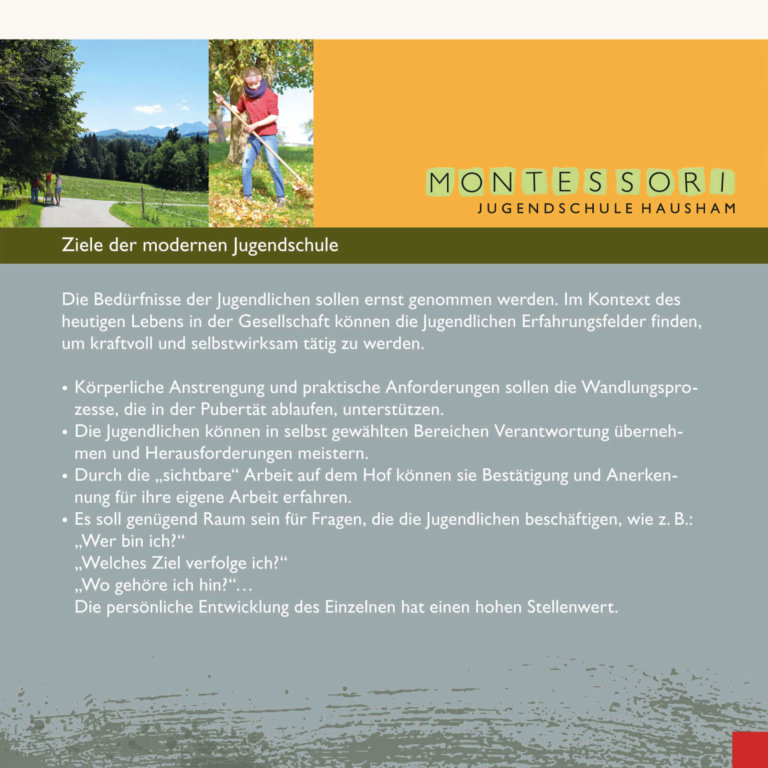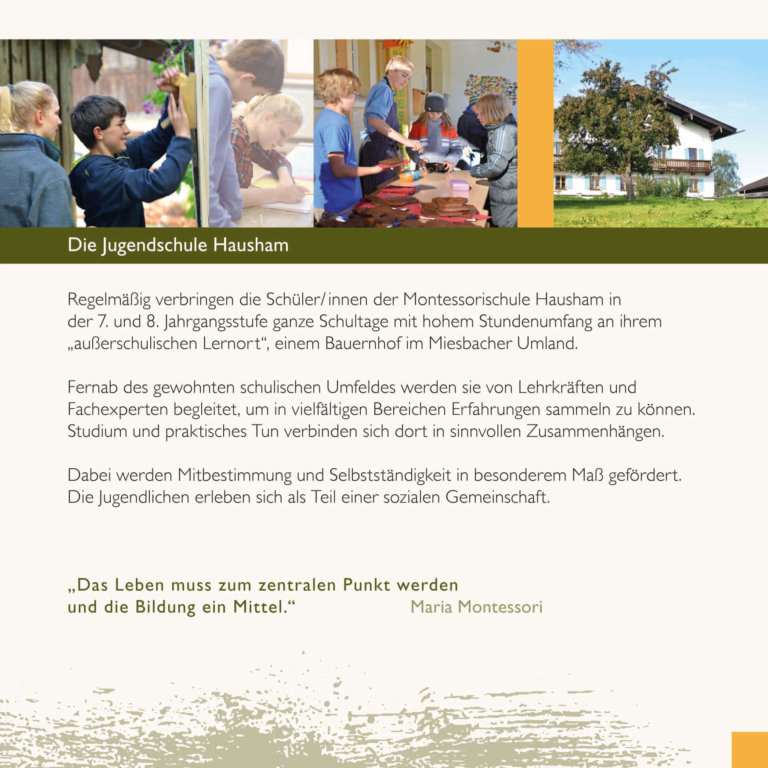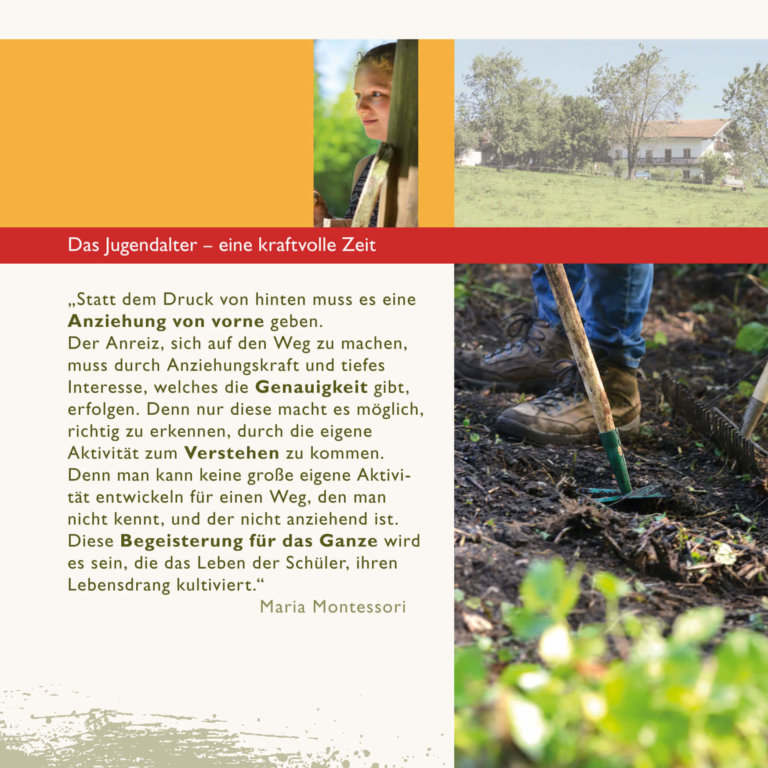In addition, the Montessori school would like to strengthen the individual personalities of children and young people.
Thus, the Montessori system formulates further goals for the pupils, which are reflected in the organisation of their daily routine. For example, learning does not take place according to a schedule that is the same for everyone, regardless of their current interests and abilities. Rather, the Montessori system can adapt to the individual learning and maturing processes of the pupils. The children plan the time and duration of the exercise phases themselves.
The learning material and the learning method developed by Maria Montessori form the children’s sensual, mental abilities; by working on the material, “comprehension” can be made possible.
During the free time, the children’s independence, decision-making power and creative and spontaneous activity are stimulated and strengthened beyond the subject knowledge that can be queried.
From an early age, the children present their work results to the group and work on their topics in small groups or with a partner, thus learning teamwork and cooperation. They experience that learning is fun, instead of the often described fear from the regular school system.
They learn to act responsibly for themselves and others.
Above all, however, they learn how to LEARN themselves.
This thesis states that the topic of homework should be handled responsibly. In principle, the acquisition of knowledge and its practice should take place at school. At the same time, learning does not end at the school gate.
At home, in the family, in the neighbourhood, in leisure time there is also a lot to learn, to ask questions and to explore and test things. Thus, dealing with a topic often interlocks with one another in school and private life.
However, experience has shown time and again that there are not enough opportunities to practice at school for all children and for all contents (e.g. multiplication tables). Therefore, arrangements can be made with parents and children for necessary, individual exercises at home. These agreements, especially between teachers and parents, are absolutely necessary to ensure that children are not exposed to two different (sometimes contradictory) ways of learning.
It is possible at any time
- voluntary homework
- work begun at school is completed at home
- information, books and illustrative material on the respective topics are collected (especially for presentations)
Especially in the higher classes, tasks are also carried out at home according to individual learning plans.
The pupils keep a learning, working, cognitive diary, which also includes the work done at home. Just as in free work, each child also pursues his or her own chosen work and interests in his or her free time, so there can be no “same homework for all. All important information on this can be found under Parents’ cooperation.

The goal of the modern Youth School
The needs of young people should be taken seriously. In the context of today’s life in society, the young people can find fields of experience to become active in a powerful and self-effective way.
- Physical effort and practical demands should support the processes of change that take place in puberty.
- The young people can take on responsibility and master challenges in self-chosen areas.
- Through the “visible” work on the farm they can experience confirmation and recognition for their own work.
- There should be enough space for questions that occupy the young people, such as
“Who am I?”
“What is my goal?”
“Where do I belong?”…
The personal development of the individual has a high priority.
The students in the 7th and 8th grades at the Montessori School Hausham regularly spend entire school days at their “extracurricular learning location”, a farm in the Miesbach area.
Far away from the usual school environment, they are accompanied by teachers and subject experts in order to gain experience in various areas. Study and practical work are combined there in meaningful contexts.
Co-determination and independence are particularly encouraged. The young people experience themselves as part of a social community.
“Life must become the central point and education a means.”
Maria Montessori
Our goal is to create a suitable environment for every child within the scope of our possibilities, such as through additional staff, material, small group work, teamwork etc.


